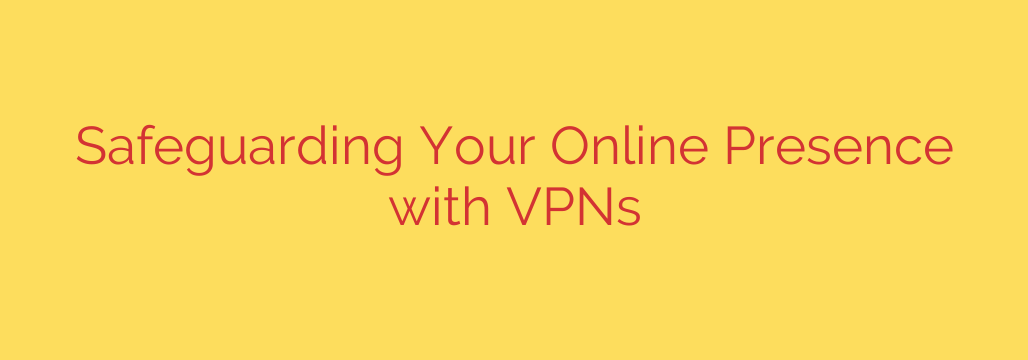
In our increasingly connected world, protecting your digital footprint is more critical than ever. Every time you go online, you potentially expose your personal data and browsing activities to various entities, from internet service providers to cybercriminals lurking on public networks. Building a strong defense for your online presence is paramount to maintaining privacy and security.
One of the most effective tools available for enhancing your online safety is a Virtual Private Network, commonly known as a VPN. A VPN works by creating an encrypted tunnel for your internet traffic. Instead of your data traveling directly from your device to the websites or services you visit, it first goes through the VPN server. This process serves two primary functions that are vital for safeguarding your presence online.
Firstly, a VPN encrypts your data. This means that all the information sent and received through the VPN connection is scrambled into an unreadable format. If intercepted by hackers or snoopers, your data appears as nonsensical code, making it virtually impossible for them to understand sensitive details like passwords, financial information, or personal messages. This layer of encryption is especially crucial when using unsecured public Wi-Fi networks, which are notorious breeding grounds for cyberattacks. Connecting to public hotspots without protection can leave your data vulnerable to eavesdropping and theft.
Secondly, a VPN masks your real IP address. Your IP address is like your device’s unique online identifier, often revealing your geographical location and allowing others to track your online behavior. When you connect to a VPN, your traffic appears to originate from the VPN server’s IP address, effectively hiding your own. This makes it significantly harder for websites, advertisers, and even your ISP to monitor your browsing habits or link online activities back to your real identity. By concealing your IP, a VPN adds a significant layer of anonymity to your online interactions, contributing greatly to your overall digital privacy.
Ultimately, utilizing a VPN is a fundamental step towards taking control of your online security. It provides essential protection against snoopers on public networks, prevents unwanted tracking, and adds a vital barrier against various cyber threats. Integrating a reliable VPN into your daily internet usage is a proactive measure that significantly strengthens your defenses and helps ensure your online presence remains private and secure.
Source: https://kifarunix.com/protecting-your-privacy-how-vpns-safeguard-your-online-presence/








